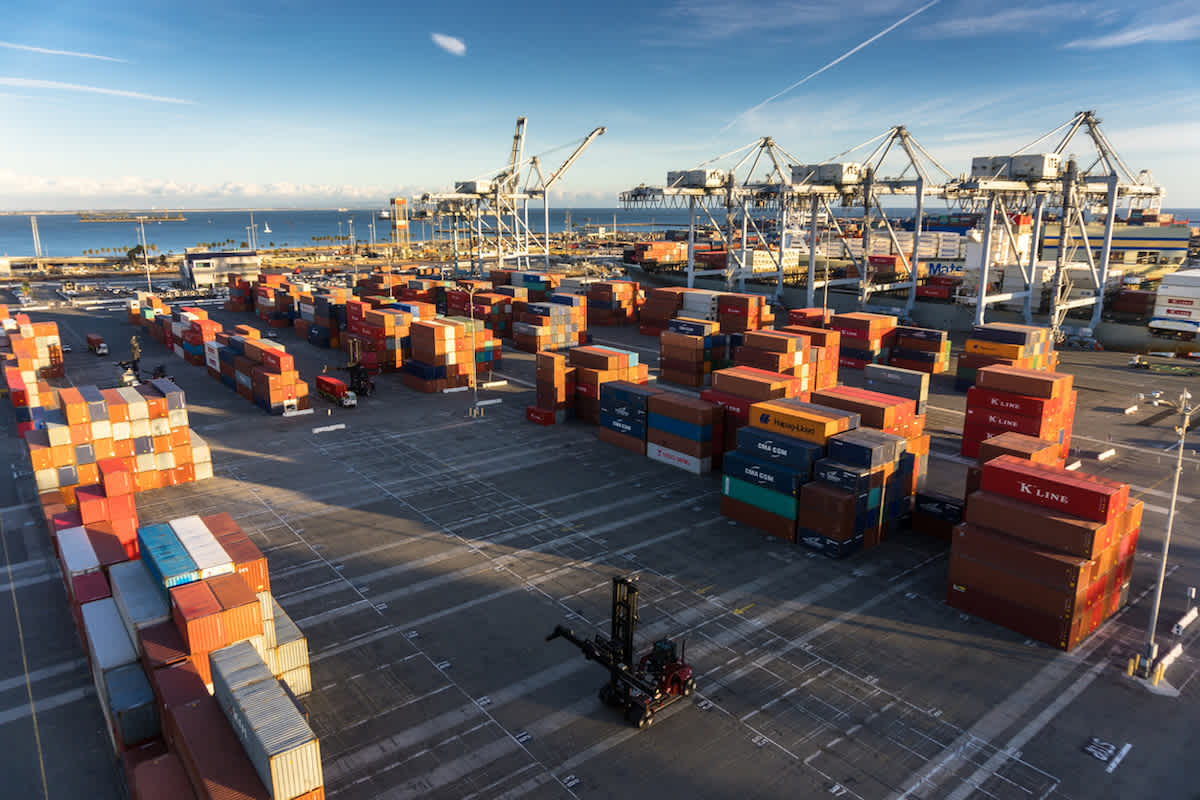
2019 年 05 月 30 日
What You Need to Know About Canada’s ILWU Port Worker Lockout
What You Need to Know About Canada’s ILWU Port Worker Lockout
Editor’s Note: As negotiations continue and this story evolves, we will periodically provide updates to this post.
Update: The BCMEA and ILWU reached a tentative agreement this morning, ending the lockout a few hours after it began.
From industry consolidation to rising tariffs to the looming impact of IMO 2020, uncertainty casts a long shadow on global trade. And now, the landscape has grown increasingly cloudy due to the rapidly escalating dispute between the British Columbia Maritime Employers Association (BCMEA) and the International Longshore and Warehouse Union – Canada (ILWU – Canada).
On May 28, BCMEA, the organization that negotiates labor contracts with Canadian longshoremen working at British Columbia ports, informed the ILWU that it will lock out all employees covered by the expired agreement between the two organizations, effective Thursday, May 30th at 8 a.m. Pacific time. Overnight negotiations did not reach an agreement before the deadline and a lockout has begun.
After more than a year of labor talks, work at affected terminals at all West Coast ports – Vanterm, Deltaport, Fraser Surrey, Centerm and Prince Rupert’s Fairview Container Terminal – will come to a stop. According to CBC News, this lockout could impact around 200 facilities and 7,000 workers – but it does not include those servicing grain operations or cruise ships.
How did the situation come to this? What effect could befall North American shippers and the Canadian economy? And how can you mitigate the potential impact to your business? Read on for a brief recap of the essential details – and to gain insights from Flexport’s ocean shipping experts.
What Led to the Lockout
A previous eight-year deal between the BCMEA and ILWU expired in March of 2018, but negotiations have continued for well over a year now. The heart of the ongoing dispute is the ILWU’s desire for additional language and provisions to help its members mitigate the potential impact of automation at port facilities, which the union believes threatens the jobs of its members.
On May 8, the ILWU voted by 98% to have a stop-work strike, if necessary. And, on May 27, the ILWU gave official notice of a targeted job action in the form of banning overtime and not reporting for work early. This work action became the catalyst cited by the BCMEA for its announced lockout.
“Our preference remains to resolve this at the bargaining table without disruption; however, as a result of the recent and significant disruptions caused by the ILWU – Canada’s work-to-rule job action, we can no longer effectively and safely operate the impacted terminals. This has already caused cargo diversion from the B.C. coast and threatens further loss of cargo,” said Jeff Scott, Chair of the Board of BCMEA.
The ILWU Canada President Rob Ashton said Tuesday afternoon that the union was "shocked" by the BCMEA's action, calling it "reckless and irresponsible." He stated the union had taken a moderate approach, recognizing the importance of British Columbia ports to Canada's economic interests. "We're urging the employer to come back to the table and work with us to have language that helps protect the workers they allegedly say that they respect and want to save."
On Tuesday night, the B.C. Maritime Employers Association said after discussions with the Federal Mediation and Conciliation Service and Ministry of Labour, the two parties agreed to return to the bargaining table Wednesday at noon.
What It Could Mean
According to the Retail Council of Canada, more than half of Canada’s consumer goods come through the Port of Vancouver. As such, “the impact will be significant for the average Canadian who depends on the reliable flow of goods that move through our British Columbia ports,” said Jeff Scott, Chair of the Board of BCMEA in a statement. While it’s difficult to estimate what a work stoppage could actually cost or the impact it could create across the industry, Jeff Scott said disruption at B.C.'s ports could cost the Canadian economy about $5 billion a day.
Feedback among BCMEA/PMA members is that the Canadian government may get involved before anything gets too far out of control and enable everyone go back to work.
Beyond the average Canadian dependent on goods moving through these ports, there could be some impact on U.S. imports as well, specifically those that transit inland on the railroad after arriving via Canadian seaports. This could lead to delayed deliveries or even stock-outs for some retailers.
How Carriers Are Responding
Several carriers are adding 5-7 days of buffer to vessel schedules set to call at the British Columbia seaports effective for vessels arriving or departing from these ports on May 30th or later.
Some carriers have also indicated to us that they have ample opportunities to divert vessels that have not yet departed Asia to call at other major US ports like Seattle/Tacoma, Oakland or Los Angeles/Long Beach, if the situation persists. Vessels already in transit may not have the option to divert course and will call at the British Columbia ports as scheduled (with the aforementioned 5 day buffer).
Please note that none of these diversions are confirmed/announced, but they have already begun communication efforts with terminals in Seattle and LA/Long Beach, should they require berth space – and carriers have further advised that no diversion decisions will occur until June 4th, but that options continue to be vetted.
What You Can Do Now
At this point, there’s no clear timeline for resolution for the labor dispute. Here at Flexport, we are in active communications with our ocean carrier partners about how the situation could impact service strings.
To mitigate any potential impact to your business from the ongoing B.C. port negotiations:
- For critical shipments that you typically route to the affected ports, work closely with your freight forwarder to determine what, if any, impact you may experience and whether you might consider alternate routings to mitigate delays
- Closely monitor news industry and local news outlets such as The Journal of Commerce and CBC News for updates – as well as subscribe to Flexport’s weekly Freight Market Updates
And, of course, feel free to contact Flexport. We’d be happy to explore how we can support your freight forwarding needs.
Stay tuned, this post will be updated as the situation unfolds.



